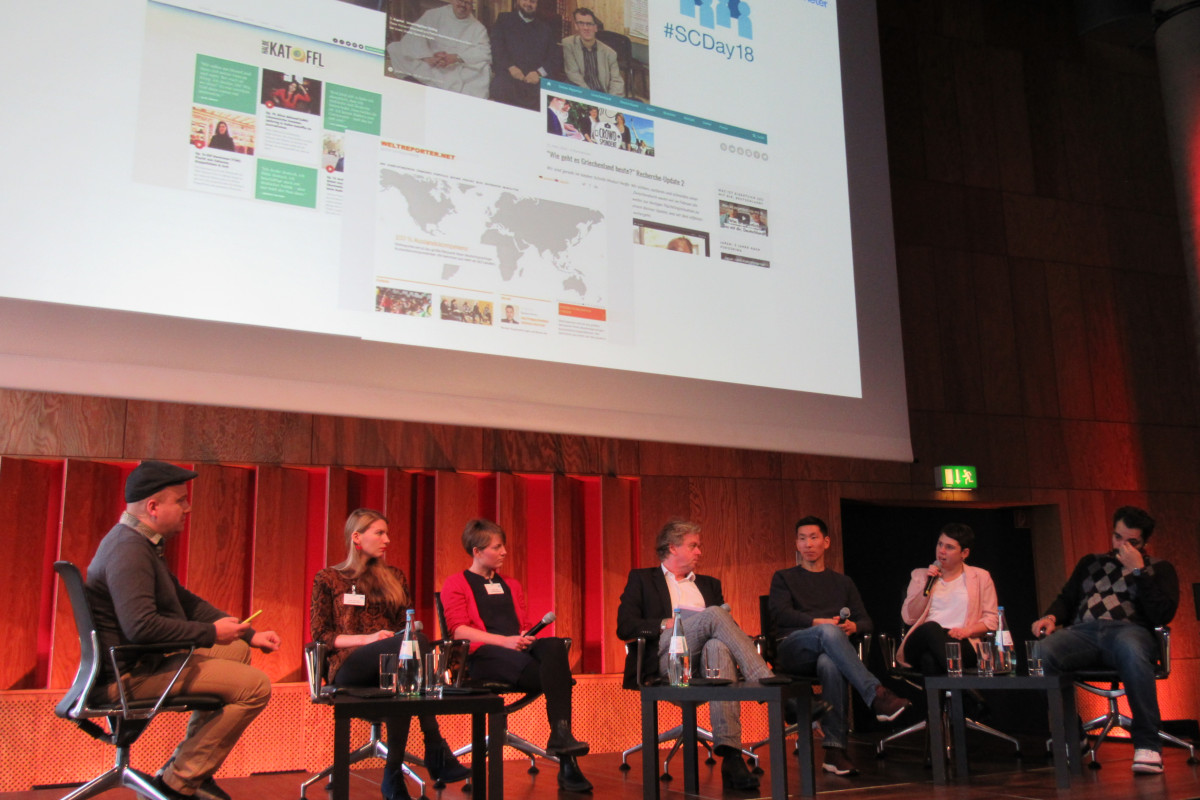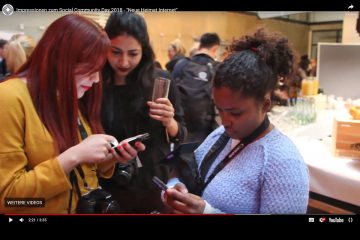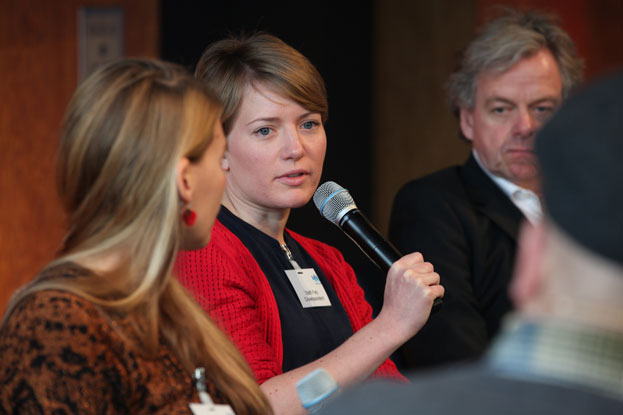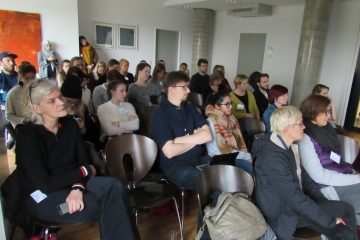Panel „Wissen über Heimat“

- Lisa Altmeier und Steffi Fetz / Crowdspondent
- Thomas Franke / Weltreporter
- Frank Joung / Halbe Katoffl Podcast
- Lisa McMinn / Ein deutsches Dorf
- Özgür Uludag / Eine Kirche wird zur Moschee
What do we know about “Heimat”? Within the first panel discussion six nominees and laureates of the Grimme Online Award are sharing their knowledge and experience about the term “Heimat”.
One of the speakers, Lisa McMinn, a freelance journalist, embarked (with 15 other journalists) on a project on a small village in Germany, named “Ein deutsches Dorf”. She interviewed some teenagers about “Heimat”. For them it means structure, local meeting points and having social security. In this village, you cannot find reporters. For that reason, small WhatsApp groups play an important role in communication. The baker, for example is the most important medium of communication because he knows everything in the village, she said. In her opinion, “Heimat” should not be connected to politics or a nation but rather should be a place for everyone.
For Frank Joung, the creator of Halbe Katoffl Podcast and journalist from Berlin, “Heimat” is where the family is and where you connect to positive experiences. On his project, one can find a wide diversity of people´s stories that have the same “Heimat Deutschland” although they have different immigrant backgrounds. The Korean roots-journalist Joung, expressed his concern about the new identity problems that globalization has aroused. His head is German, his heart is Korean, he says. That´s why he decided to take action and create Halbe Kartoffl as a tool to approach the challenge of integration, such as racism and discrimination, and the good experiences of “being a German”.
Lisa Altmeier and Steffi Fetz are the founders of the project “crowdspondent”. Their definition of “Heimat” is how people live and the relationships they have. While the internet has a great influence on the way people connect, it is also an enabler to build and nurture these relations. Steffi Fetz especially picks into the human and natural aspects of daily co-existence that comes from denoting a purposeful meaning in a shared message – for example a laughter in the bus.
It is very difficult to define „Heimat”, Thomas Franke, a journalist from Weltreporter network, says. The discussion about this topic is very intense but for him personally it means safety and emotions. He has carried out many investigations about this issue and made interviews with some persons who have lost their homeland and found out that home for them is the symbol for the place. Franke added that for some people their identity and background is tied with their homeland.
In his work, he asked some refugees whether they prefer to stay in Europe or to go back to their homeland if they had the opportunity to. Surprisingly most of the people prefer to return. He pointed out that some people are confused with the term “Heimat” because of the populists who misuse the wording of “Heimat“. In his opinion, it is necessary that the term „Heimat“ is positively redefined.
The last speaker, Özgür Uludag, a journalist and author with Turkish roots, talked about his documentary “Eine Kirche wird zur Moschee” about rebuilding of a church into a mosque. Although the project had a difficult start, the project has gained a lot of support. It is not only the “Heimat” for Turkish people but also refugees have made it their home. I can’t integrate myself more as the majority integrates me, says Özgür Uludag.
Live-Redaktion: Kathrin Keller, Mohammed Mohammed, Tracy Kariuki, Ahmed Ahmed,Carla Portillo, Eleonore Nandwa, Amena Khatun


